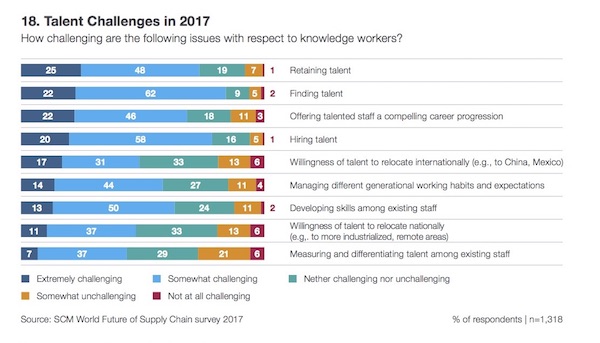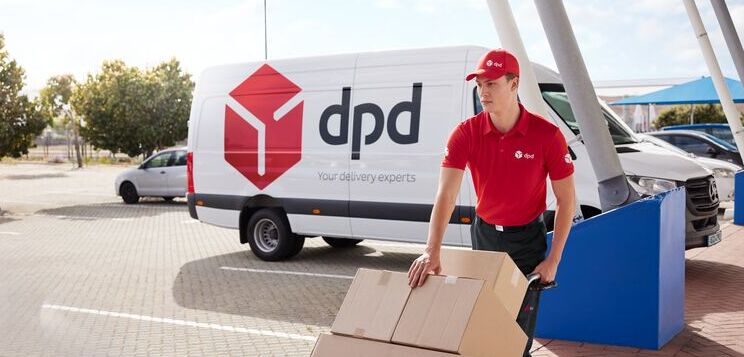3 things Supply Chain Leaders can do to leverage talent for the Digital Supply Chain
AIMMS has been active in the supply chain space for over 28 years. We’ve seen the evolution of the industry and its ongoing transformation, and have embarked on a transformation ourselves. The skills of the past are no longer sufficient to meet the demands of today’s complex, fast-moving digital environment, or prepare for the future. There is also a supply chain talent shortage. As the most experienced supply chain professionals retire, CSCMP estimates that as many as 3.5 million positions may go unfilled by 2020. The competition for talent is tough, as “demand for supply chain professionals is estimated to exceed supply by a ratio of six to one.” Here are three things you can do to attract and leverage talent for the digital supply chain.
Millennials are important, put a strategy in place to attract and retain
Many companies are focusing their recruitment efforts on attracting millennials (people born between 1985 and the late 90s) to address the skills gap. This tech-savvy group can be a great source of new ideas and innovative solutions for managing the supply chain of the future. But they are also more likely to job hop and they have different expectations, such as a preference for flexibility.
Millennials don’t do standard 9-5. Employees with families and commuters also appreciate flexible schedules. The good thing is that employers are becoming comfortable with flexible working arrangements. Globally, two-thirds of millennials say their employers have adopted flexible arrangements. 69% have flexibility in terms of work schedules, 69% enjoy flexibility in their role and functions, and 64% have flexibility in terms of location. Flexibility is key if you’re looking to attract millennials to your team.
Having a strong sense of purpose is also important. According to Deloitte’s 2017 Millennial Survey, millennials like to feel impactful in their workplace and believe they have a high degree of accountability when it comes to things like customer satisfaction, organizational integrity, reputation, and the products and services provided. Make sure you consider this to make your recruitment and retention efforts effective among this target group.

Experienced workers in the supply chain have a lot of knowledge to transfer, set up a mentoring program
Experienced workers in the supply chain have a lot to leave behind from an experience standpoint. Make sure you facilitate knowledge transfer in your team and keep these workers engaged. 30% of respondents in an APICS survey stated lack of knowledge transfer or training was a key challenge, among the top 5. Deloitte’s 2016 survey is also telling: of the workers who want to leave their jobs within the next two years, more than 70% cite a lack of leadership development. And it’s not just millennials that are more likely to leave a job where they don’t see possibilities for professional growth. In a study by Saba, 62% of baby boomers and Gen-Xers stated they would stay if given quality development. Today’s digital paradigm demands a highly engaged and empowered workforce.
A mentor program can be highly effective to capture knowledge from existing workers. Invest in training programs to upskill people and build a leadership development program to drive engagement.
Use accessible technology
When it comes to technology, the new age of supply chain talent has expectations about the software they use. In a recent APICS survey of millennial workers in the supply chain, 34% of respondents said lack of needed resources and technology was a top frustration and challenge. 66% of them stated that they consider working with the latest technologies important. You can’t attract and keep the next generation of talent with legacy software. Millennials aren’t the only ones who prefer easy-to-use tools. People expect to be able to work in the cloud, they are more visually oriented and have expectations about the usability of their software. Clunky systems that don’t facilitate collaboration won’t help you drive retention. Today’s business reality is also volatile and ever-changing. Your workforce is increasingly pressed to use more agile technology. Look for tools that will self-enable them to plan efficiently and effectively and make changes quickly as things unfold.
Combining these three things can help you attract and leverage talent effectively in the digital age.
Looking for supply chain design and S&OP technology to self-enable your team? AIMMS SC Navigator offers a fast learning curve because it is much easier to use than dated legacy systems. Contact us and we’ll show you how easy it is to get started.





